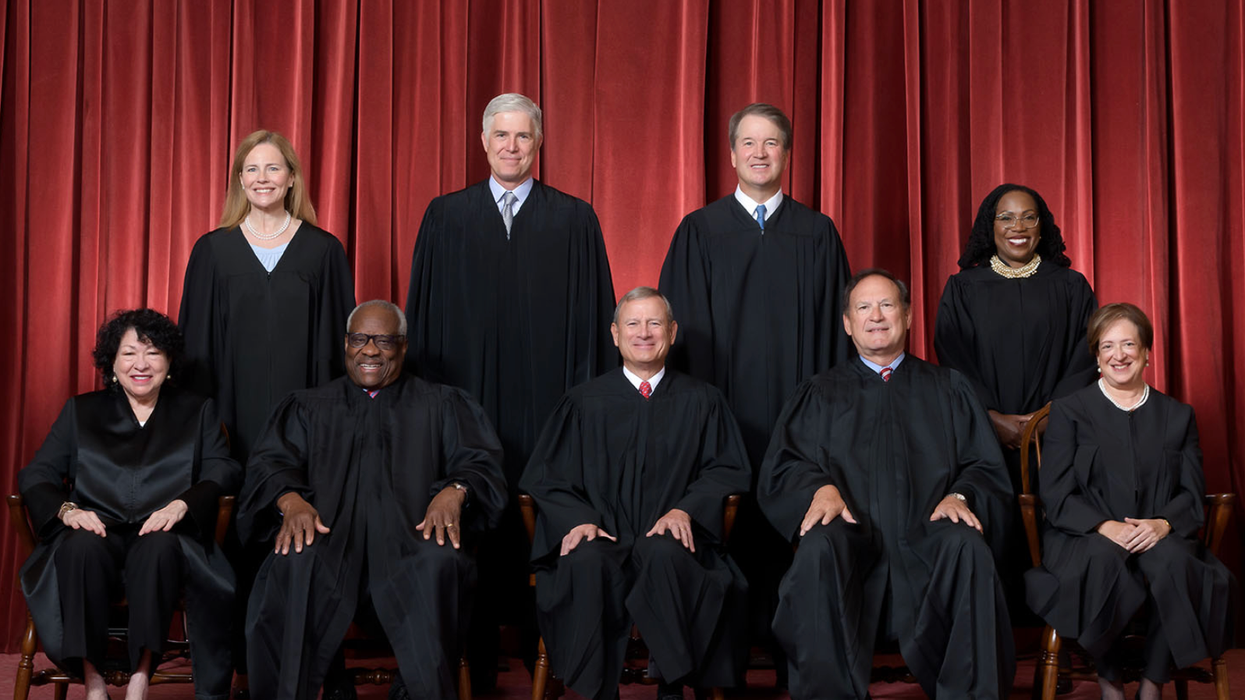One of the most consequential Supreme Court decisions expected this term was momentarily posted to the Court's website before it was promptly taken down.
Bloomberg first reported that the decision in a major abortion-related case briefly appeared on SCOTUS' website, in which it appeared as if the Court would allow for emergency abortions to be performed in Idaho despite the Gem State's ban on abortions. The author of the opinion and a breakdown of how individual justices voted on the decision remains unknown.
In the cases, Moyle v. United States and State of Idaho v. United States, justices are expected to dismiss the case brought by the plaintiff as "improvidently granted." This means that Idaho's challenging the application of the Emergency Medical Treatment and Labor Act (EMTALA) against its own abortion ban would mean that the existing federal law supersedes state law.
READ MORE: 'Want these people gone': Pregnant women seen as 'radioactive' in red state emergency rooms
Idaho was one of the first states to officially ban all abortions after SCOTUS overturned the Roe v. Wade decision in June of 2022. That summer, Idaho's GOP-controlled legislature passed the Defense of Life Act, which makes it a felony crime punishable by two to five years in prison for anyone who performs an abortion within the state. Additionally, any abortion provider who performs the procedure would have their license suspended for six months pending review, and their license would be permanently revoked on the second offense.
While the law provides exceptions for cases in which the life of the mother would be at risk, many emergency rooms in Republican-controlled states frequently turned away pregnant patients due to not wanting to run afoul of the law. This is a violation of EMTALA, which states that any hospital that receives federal funding from Medicaid and Medicare has to provide emergency treatment to any emergency room patient.
"They are so scared of a pregnant patient, that the emergency medicine staff won’t even look," George Washington University professor Sara Rosenbaum told the Associated Press in April. "They just want these people gone."
While the brief posting of the Idaho abortion decision may not have been the final opinion, justices may have sided with the U.S. government based on the Supremacy Clause. Article VI, paragraph 2 of the Constitution explicitly instructs states that their laws may not interfere with federal law, and that when the two clash, federal law will be prioritized.
READ MORE: 'Don't breathe easy yet': Abortion pill safe only 'for now' experts say after SCOTUS ruling
Since Idaho passed its abortion ban, the state has seen an exodus of obstetricians and gynecologists. Oregon Public Broadcasting (OPB) reported that the Gem State has lost roughly one in five OB-GYN professionals since its abortion ban became law.
“What we’re seeing in this report and with this exodus of providers is that now Idaho is a state that criminalizes physicians, and the chilling effect is real," Valley County Family care obstetrician and Coalition board president Caitlin Gustafson told OPB in February.
Click here to read Bloomberg's report (subscription required).


